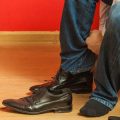1. Understanding the Psychological Impact of Injury and Surgery
Recovering from tendon or ligament surgery isn’t just about physical healing—it’s also a major mental journey. Many people are surprised by the emotional challenges that come with injury, surgery, and the recovery process. It’s completely normal to feel a mix of emotions as you work toward getting back to your everyday life.
Common Emotional Responses After Surgery
After tendon or ligament surgery, you might notice changes in your mood or feelings. Here are some common emotional responses:
| Emotion | How It Might Show Up |
|---|---|
| Anxiety | Worry about re-injury, fear of movement, concerns about future performance |
| Depression | Feeling down or hopeless, loss of interest in usual activities, low motivation |
| Frustration | Irritation with slow progress, impatience with limitations, anger at setbacks |
The Impact on Daily Life and Identity
Surgery can change how you experience daily life. You may need help with basic tasks or have to skip activities you enjoy. These changes can affect how you see yourself—especially if sports, fitness, or an active lifestyle are part of your identity. It’s normal to feel like you’ve lost a part of yourself when you can’t do what you love.
Examples of Life Changes Patients May Face:
- Needing extra time to get ready in the morning because of limited mobility
- Relying on family or friends for rides, errands, or chores
- Missing out on social events or team activities
- Feeling isolated from coworkers or teammates while recovering at home
The Mind-Body Connection in Recovery
Your thoughts and feelings can impact your recovery. If anxiety or frustration becomes overwhelming, it might be harder to stay motivated with physical therapy or trust your body again. Recognizing these feelings is the first step toward managing them—and getting back on track physically and emotionally.
2. Recognizing and Addressing Fear of Re-Injury
Understanding the Prevalence of Fear After Surgery
After tendon or ligament surgery, it’s extremely common for people to feel worried about getting hurt again. This fear can be triggered by memories of the original injury, pain during rehab, or uncertainty about how strong their body really is. Many patients—regardless of age, athletic level, or background—experience these feelings. It’s important to remember that this reaction is normal and not a sign of weakness.
How Fear of Re-Injury Can Affect Recovery
Fear of re-injury can have a real impact on your recovery process. If you’re too scared to move or push yourself in physical therapy, you might avoid exercises that are actually safe and helpful. This “protective” behavior can slow down your progress or even lead to muscle weakness, stiffness, or loss of confidence. The table below shows some common effects of fear after surgery:
| Fear-Driven Behavior | Possible Impact on Recovery |
|---|---|
| Avoiding physical activity | Slower regaining of strength and flexibility |
| Overprotecting the injured area | Increased stiffness and decreased mobility |
| Refusing to participate in sports or hobbies | Reduced overall well-being and quality of life |
| Constantly checking for pain or swelling | Heightened anxiety and delayed healing |
The Importance of Early Identification
Catching these fears early is key. If you notice yourself feeling unusually anxious about re-injury, talk to your healthcare team right away. Physical therapists, doctors, and even psychologists can help you work through these worries using proven strategies like graded exposure (gradually returning to activities) and positive self-talk. The earlier you address your fears, the better chance you have at a confident return to activity.

3. Effective Communication with Healthcare Providers
Recovering from tendon or ligament surgery is not just about physical healing—it’s also about managing your emotions and mental well-being. One of the most important steps you can take is to talk openly with your healthcare team. This includes your physical therapists, surgeons, and primary care providers. When you share your fears, frustrations, or worries about re-injury, your providers can help create a recovery plan that fits your needs and supports both your body and mind.
Why Open Communication Matters
Many people feel nervous or even scared after surgery, especially when it comes to getting back to regular activities or sports. You might worry about hurting yourself again. By telling your healthcare providers how you’re feeling, they can:
- Reassure you with facts about your progress
- Adjust your rehab plan if needed
- Help set clear, realistic goals for recovery
- Offer support for emotional ups and downs
Who Should You Talk To?
| Provider | How They Can Help |
|---|---|
| Physical Therapist | Guides your exercises, monitors progress, and helps address fears during rehab sessions |
| Surgeon | Explains the healing process, answers questions about the surgery outcome, and reassures you about what’s normal |
| Primary Care Provider | Supports your overall health, manages stress or anxiety, and refers you to counseling if needed |
Tips for Having Better Conversations with Your Healthcare Team
- Be honest: Share any pain, worries, or setbacks you experience—don’t hold back.
- Ask questions: If you don’t understand something about your rehab or restrictions, ask for clarification.
- Set goals together: Work with your team to set goals that are achievable and meaningful for you.
- Bring a list: Write down symptoms or questions before each appointment so you don’t forget anything important.
- Mention mental health: Let them know if you’re feeling anxious or down—they can offer resources or referrals.
Your Voice Matters in Recovery
Your healthcare providers want you to succeed—not just physically but also emotionally. By speaking up and working together, you’ll build confidence and reduce the fear of re-injury as you move forward in your recovery journey.
4. Strategies for Building Confidence During Rehabilitation
Understanding the Importance of Confidence in Recovery
After tendon or ligament surgery, its normal to feel anxious or worried about re-injury. Regaining confidence in your body is just as important as physical healing. A strong mindset helps you push through rehab and return to activities you love.
Evidence-Based Strategies to Rebuild Trust and Reduce Fear
Many proven methods can help you manage psychological barriers and reduce fear during rehabilitation. Here are some key strategies:
1. Gradual Exposure
This approach means slowly introducing your body to movements or activities you’re afraid of, starting with easier tasks and building up over time. Gradual exposure not only rebuilds physical strength but also teaches your brain that movement is safe again.
| Stage | Example Activity | Purpose |
|---|---|---|
| Early Stage | Ankle pumps, gentle stretching | Restore mobility, reduce stiffness |
| Mid Stage | Balance drills, light resistance exercises | Improve stability, test tolerance |
| Advanced Stage | Sport-specific drills, running, jumping | Rebuild trust, prepare for real-life activity |
2. Goal Setting
Setting small, realistic goals gives you a sense of progress and motivation. Work with your rehab team to create weekly or monthly milestones based on your recovery timeline.
| Type of Goal | Example | How It Helps |
|---|---|---|
| Short-term Goal | Bend knee to 90 degrees by week 2 post-surgery | Keeps focus on immediate improvements and prevents overwhelm |
| Medium-term Goal | Walk one block without pain by week 6 post-surgery | Builds momentum and celebrates progress along the way |
| Long-term Goal | Return to jogging by month 5 post-surgery | Makes big achievements feel possible with steady steps forward |
3. Mindfulness Techniques and Mental Skills Training
Anxiety after injury is common, but mindfulness can help keep worries from taking over. Simple techniques like focused breathing, meditation apps (like Headspace or Calm), or guided imagery help calm your mind and shift attention away from fear.
- Breathe Deeply: Inhale for four counts, hold for four, exhale for six. Repeat several times when feeling nervous.
- Mental Imagery: Picture yourself performing rehab exercises successfully before actually doing them.
- Acknowledge Progress: Take a moment each day to notice small wins—these add up!
The Role of Your Support System
Your rehab team—including physical therapists, athletic trainers, doctors, and even family members—can help reinforce these strategies. Dont hesitate to share your fears with them; together, youll find solutions that work best for you.
5. Leveraging Social Support and Community Resources
Recovering from tendon or ligament surgery isnt just about physical healing—its also about managing the mental and emotional challenges that come with it. Fear of re-injury, frustration over slow progress, and feelings of isolation are common during rehabilitation. That’s why tapping into social support and community resources can make a big difference in your recovery journey.
The Importance of Social Support
Having a strong support system helps you stay motivated, cope with setbacks, and celebrate small victories along the way. Family members, friends, support groups, and even professional counseling can all play unique roles in helping you manage psychological stress and maintain a positive outlook.
| Support Source | How They Help |
|---|---|
| Family & Friends | Provide daily encouragement, help with tasks, offer emotional comfort, and keep you engaged in social activities |
| Support Groups | Share experiences with others facing similar challenges, reduce feelings of isolation, and exchange practical tips for recovery |
| Counseling & Therapy | Help process emotions, address fear of re-injury, build coping skills, and set realistic goals for progress |
| Online Communities | Access information 24/7, connect with others nationwide, and find resources tailored to your specific injury or surgery type |
Ways to Get Connected
- Talk openly: Let your loved ones know how you’re feeling. Don’t hesitate to ask for help when you need it.
- Join local or online groups: Many hospitals, clinics, and organizations like the American Physical Therapy Association (APTA) offer support groups for people recovering from orthopedic injuries.
- Consider professional help: Speaking with a counselor or psychologist familiar with sports injuries or post-surgical rehab can provide valuable tools to manage anxiety or depression.
- Stay involved: Even if you can’t participate in all your usual activities right away, try to stay socially active—whether that means virtual meetups or small gatherings at home.
The Role of Motivation in Recovery
Your motivation may fluctuate during recovery. Leaning on your support network can help keep you accountable to your rehab goals. Celebrate milestones—no matter how small—and remember that emotional ups and downs are part of the process.
Tips for Maintaining Motivation:
- Create a routine that includes both rehab exercises and enjoyable activities with friends or family.
- Set short-term goals together with your support team to track progress.
- Acknowledge setbacks as temporary and use them as opportunities to learn and adapt.
- Remind yourself that reaching out for help is a sign of strength—not weakness.
If You’re Not Sure Where to Start:
Your healthcare provider or physical therapist can suggest local resources or recommend counselors who specialize in rehabilitation psychology. Don’t hesitate to ask—they’re there to help guide you through both the physical and mental aspects of healing.


